Agenda Topics
Day(s)
:
Hour(s)
:
Minute(s)
:
Second(s)
Theatre Topics
Theatre
9th & 10th October 2024
Data Protection & Privacy
Through a series of engaging panel discussions, esteemed panelists delve into the multifaceted aspects of data privacy, exposing the hidden layers and complexities of this critical issue. They explore the evolving regulatory landscape, the ethical dilemmas posed by data-driven technologies, and the importance of fostering a culture of responsible data handling.
Data privacy is not just a technical challenge; it’s a social, ethical, and legal conundrum that demands a multi-faceted approach. Our panel of experts will unravel the labyrinth of data privacy, highlighting the delicate balance between protecting personal information and leveraging data for innovation and progress.
Previous Speakers

Aiym Rayani Vice President, Microsoft Security


Cross-border data transfer issues
Cross-border data flows face growing complexities in 2024, marked by a tangle of conflicting regulations, data localisation demands, and cybersecurity concerns.
Overall, 2024 promises a dynamic and challenging landscape for cross-border data transfers. Businesses must navigate a complex regulatory environment, adapt to evolving legal frameworks, and prioritise data security to remain compliant and operate efficiently.
Diversity in PrivSec
Increasing diversity in PrivSec is not just about fairness and representation; it’s also about building a more robust and effective field. By embracing diversity and creating inclusive workplaces, the PrivSec industry can benefit from a wider range of perspectives, experiences, and skills, ultimately leading to better solutions for protecting privacy and security for everyone.
Tour of the Global Privacy Landscape
2024 presents a dynamic and evolving global privacy landscape. Businesses need to stay informed, adapt to shifting regulations, and prioritise privacy-by-design principles to operate responsibly and protect user data.
For individuals, awareness and engagement remain crucial in advocating for stronger protections and exercising control over their personal information.
Bridging the Privacy and Security Gap
Bridging the privacy and security gap in 2024 necessitates a multi-faceted approach.
Embracing innovative technologies, fostering global collaboration, and prioritising user education are crucial steps in creating a safer and more secure digital future where individual privacy is respected and protected.
Mitigating organisational impact of a Data Breach
Data breaches are no longer a matter of “if” but “when” in today’s digital landscape. In 2024, with evolving attack vectors and ever-increasing volumes of sensitive data, the focus extends beyond preventing breaches to minimising their organisational impact.
Global complexity of data localisation
Data localisation, the requirement to store or process data within a specific geographic boundary, has risen to the forefront of global data governance in 2024. However, its implementation presents a labyrinthine landscape of complexity, posing significant challenges for businesses and researchers
Theatre
9th & 10th October 2024
AI & ML
Our esteemed panelists embark on a journey through the intricate maze of AI and machine learning, illuminating the multifaceted aspects of these transformative technologies. They delve into the ethical considerations of AI decision-making, the potential for bias and discrimination, and the challenges of ensuring transparency and accountability in AI systems.
AI and machine learning hold immense promise for solving global challenges and shaping a brighter future. However, it is crucial to approach these technologies with caution and foresight, considering their potential impact on society and individuals. Our panel of experts will guide us through these challenges, navigating the crossroads of AI and society with a focus on ethical considerations and responsible implementation.
Previous Speakers

Glenn Jackson, CEO, Cassie (Syrenis Ltd)

Huang Xiao, AI Scientist, HSBC

How AI & ML technology is Changing the Nature of Work
AI and machine learning are rapidly automating routine tasks across various industries, from data entry and manufacturing to customer service and finance.
AI and machine learning are having a profound impact on the nature of work, requiring workers to adapt to new skills and roles, which include:
- Critical thinking and problem-solving: Machines can handle routine tasks, but humans are still needed to think critically, solve problems, and make decisions.
- Creativity and innovation: AI can’t replicate human creativity, so workers who can come up with new ideas and solutions will be in high demand.
- Communication and collaboration: As AI takes over more tasks, it’s important for humans to be able to communicate effectively and collaborate with each other.
- Data literacy and analysis: Understanding how to work with data and extract insights will be essential in many jobs of the future.
The future of work is uncertain, but one thing is clear: AI and machine learning will continue to play a major role in shaping the workplace. By developing the right skills and embracing change, workers can thrive in this new environment.
Promoting a Secure-by-design Culture in AI Development
In 2024, the adoption of AI across various sectors continues at a rapid pace. However, amidst its transformative potential, concerns around bias, security vulnerabilities, and ethical issues remain pervasive. Addressing these concerns necessitates embedding security within the very core of AI development: a secure-by-design culture.
Promoting a secure-by-design culture in AI development requires a concerted effort from various stakeholders: developers, organisations, and policymakers. By investing in skilled personnel, establishing standardised practices, and fostering a collaborative environment, we can build resilient and trustworthy AI systems that benefit society without compromising security or ethical considerations.
Developing secure-by-design AI is not just a technical endeavor; it’s a cultural transformation. As we move forward in 2024 and beyond, prioritising security must become an integral part of every step in the AI development journey, enabling us to harness the power of AI for good.
AI and Trust - The Ethical Challenges of AI
Artificial intelligence (AI) is rapidly transforming our world, from powering self-driving cars to diagnosing diseases and even writing creative content. However, with this immense potential comes a growing concern: can we trust AI?
2024 is a pivotal year for AI and trust. By acknowledging the challenges and working collaboratively, we can harness the immense potential of AI while ensuring its development and use are ethical, responsible, and beneficial for all.
As the technology evolves, so too must our efforts to ensure its ethical and responsible development and deployment.
Bridging the Gap Between AI and Privacy Regulations
The explosive growth of Artificial Intelligence (AI) brings incredible opportunities, but also raises pressing concerns about privacy, bias, and algorithmic transparency. In 2024, the gap between these powerful technologies and existing privacy regulations remains wide, necessitating a delicate dance to bridge it.
The dance between AI and privacy regulations in 2024 is complex and evolving. By embracing continuous learning, prioritising human well-being, and fostering collaboration, we can navigate this intricate landscape and strive towards a future where AI’s potential benefits are harnessed responsibly and inclusively, without compromising individual privacy and fundamental rights.
AI Regulation: What Businesses Need to Know in 2024
Artificial intelligence (AI) is rapidly transforming our world, from healthcare and finance to transportation and entertainment. However, the increasing power and complexity of AI raise concerns about safety, bias, and fairness. As a result, governments worldwide are scrambling to develop regulations to govern the development and use of AI.
The regulatory landscape for AI is still evolving, but there are some key things that businesses need to be aware of in 2024:
- The EU’s AI Act: The EU’s AI Act is the most comprehensive AI regulation in the world. It will come into effect in 2024 and will apply to any company that uses AI in the EU, regardless of where it is headquartered.
- Other National and Regional Regulations: Many other countries are also developing their own AI regulations. For example, the United States, China, and India are all considering different approaches to AI regulation.
- Industry-Specific Regulations: Some industries, such as healthcare and finance, have their own regulations that apply to AI.
- The Importance of Proactive Compliance: Businesses should not wait for regulators to catch up with AI. They should start thinking about how to comply with existing and future regulations now.
Deepfakes in the Era of Generative AI
The year 2024 marks a pivotal moment in the battle against deepfakes. We stand at a crossroads, where the potential benefits of generative AI must be balanced against the very real dangers posed by deepfakes.
Through collaborative efforts from researchers, policymakers, technologists, and the public, we can navigate this complex landscape and ensure that AI technology serves to empower individuals and society as a whole.
Theatre
9th & 10th October 2024
ESG
A vibrant stage where renowned ESG experts, business leaders, and policymakers engage in stimulating discussions and interactive scenarios.
ESG is no longer a niche concern; it’s a fundamental element of sound business strategy and responsible corporate governance. Our panel of experts will guide us through the sustainable matrix, navigating the crossroads of ESG and business with a focus on creating value for all stakeholders and building a sustainable future.
Previous Speakers



Ethics
Environmental, Social, and Governance (ESG) practices are increasingly embraced, but 2024 reveals growing concerns about their ethical aspects.
The ethical landscape of ESG is evolving rapidly. Businesses must prioritise genuine commitment, transparency, and long-term impact to navigate this complex terrain and contribute to a more sustainable future.
Diversity in ESG
In 2024, diversity in ESG is no longer a fringe concept, but a crucial lens through which investors, stakeholders, and policymakers assess a company’s true sustainability and impact.
While progress has been made, significant challenges remain in ensuring equitable representation and inclusivity across the entire ESG spectrum.
Sustainability
ESG factors have become increasingly important for businesses and investors in recent years. Within this framework, sustainability has moved beyond a buzzword and is now a core driver of value creation and long-term success.
Sustainability within ESG is no longer a niche concern; it’s a mainstream imperative. Companies that actively embrace sustainability and integrate it into their business models will be well-positioned to thrive in the long run.
Procurement
ESG procurement is still in its early stages, but it is rapidly growing in importance. In the future, we can expect to see even more companies incorporating ESG factors into their procurement decisions. This will help to create a more sustainable and equitable global economy.
Wellbeing
2024 marks a pivotal moment for wellbeing in ESG. While traditional ESG considerations like environmental sustainability and ethical labor practices remain crucial, employee and community wellbeing are increasingly taking center stage.
Investors, stakeholders, and consumers are demanding greater accountability from companies, pushing them to prioritise the well-being of their workforce, local communities, and the broader environment.
Corporate reporting
ESG reporting has gone from a niche practice to a mainstream expectation in 2024. Investors, customers, and regulators are increasingly demanding transparency on how companies are managing their environmental impact, social responsibility, and corporate governance.
As a result, corporate reporting in ESG is undergoing a significant transformation.
ESG reporting is no longer just a compliance exercise; it’s becoming a core element of corporate strategy and communication. Companies that embrace ESG transparency and demonstrate strong performance on environmental, social, and governance issues are well-positioned for success in the years to come.
Theatre
9th & 10th October 2024
Compliance
Unraveling the complexities of compliance in today’s dynamic business landscape, while highlighting the importance of ethical and responsible practices.
Compliance is not a one-size-fits-all approach; it requires a nuanced understanding of the specific regulatory environment, industry-specific requirements, and the unique challenges faced by each organisation. Our panel of experts will guide us through the regulatory minefield, empowering us to navigate the maze of compliance with confidence and integrity.
Previous Speakers


Kathy Griffin, CEO, Target Group

Reduce the overall total cost of compliance
In today’s complex regulatory landscape, achieving compliance often comes at a hefty price. In 2024, businesses face an even greater challenge: reducing the overall total cost of compliance without compromising on effectiveness.
By adopting a proactive, strategic, and technology-driven approach, businesses can significantly reduce the overall total cost of compliance in 2024. Successful compliance isn’t just about meeting legal obligations; it’s about building a culture of responsible data governance, mitigating risks, and maximising operational efficiency.
Stay compliant with changing regulatory requirements
In today’s fast-paced digital world, keeping up with regulatory changes can feel like chasing a moving target. This is especially true in 2024, where a confluence of factors – from evolving privacy laws to data localization mandates – is creating a complex and ever-changing compliance landscape.
Compliance isn’t just a checkbox exercise; it’s about building trust with your customers, partners, and stakeholders. By embracing a proactive approach, leveraging technology, and seeking expert guidance, you can navigate the evolving regulatory landscape of 2024 and beyond, ensuring your organisation operates with confidence and compliance.
Encouraging compliant behaviors
Encouraging compliant behaviours is crucial for any organisation or individual striving for success. In 2024, with an increasingly complex regulatory landscape and heightened focus on ethical conduct, effective compliance strategies are more important than ever.
Organisations must create a culture of compliance that fosters ethical behaviour, reduce risks, and promotes long-term success. Encouraging compliant behaviours is an ongoing process. By prioritising commitment, communication, engagement, and continuous improvement, business leaders can create a strong foundation for a compliant and ethical organisation.
Emerging cloud security regulations
As cloud adoption skyrockets, concerns about security and data privacy keep pace. To address these concerns, a dynamic and multifaceted regulatory landscape for cloud security is emerging in 2024.
The world of cloud security regulations is in constant flux. Businesses need to stay informed, adapt to changing requirements, and prioritise robust security practices to ensure compliance and protect sensitive data in the cloud. Collaboration between governments, cloud providers, and users is crucial in developing a balanced and effective regulatory framework for the secure and innovative use of cloud technologies.
Zero Trust standards and compliance requirements
While the “never trust, always verify” principle of Zero Trust is widely embraced in 2024, the landscape of standards and compliance requirements remains a moving target.
The Zero Trust landscape in 2024 is still evolving, with standards and compliance requirements becoming more defined but not yet solidified. Organisations need to remain agile, adapting their implementations to emerging best practices and regulations while focusing on achieving concrete security outcomes.
Building A Business Case For GRC
In 2024, Governance, Risk, and Compliance (GRC) strategies move beyond mere checkboxes – they become crucial investments for navigating an increasingly complex and interconnected world.
Building a compelling business case for GRC requires a strategic approach that showcases its value proposition, aligns with organisational goals, and quantifies the tangible benefits. By addressing stakeholder concerns, demonstrating a well-defined implementation plan, and staying informed of evolving trends, you can secure crucial buy-in and unlock the transformative potential of GRC in 2024 and beyond.
Theatre
9th & 10th October 2024
Risk
Delving into the complexities of risk, exploring the challenges and opportunities of mitigating and adapting to uncertainty.
Risk is not about eliminating risk entirely but about understanding, preparing for, and adapting to uncertainty. Our panel of experts will guide us through the risk landscape, empowering us to make informed decisions in the face of risk and navigate the complexities of an ever-changing world.
Previous Speakers



Are We Winning the Fight Against Financial Crime?
In 2024, declaring a clear victory in the fight against financial crime is premature. While significant progress has been made, formidable challenges remain. Constant vigilance, adaptation, and international cooperation are key to staying ahead of evolving threats and ultimately protecting the integrity of the global financial system.
Is it possible to win this fight entirely? Perhaps not. But by continuously improving our tools, fostering collaboration, and addressing underlying vulnerabilities, we can make significant strides in disrupting criminal activity, safeguarding financial systems, and protecting legitimate businesses and individuals.
Sanctions
The landscape of sanctions in 2024 is evolving rapidly, driven by ongoing geopolitical tensions, human rights concerns, and technological advancements.
Overall, the world of sanctions in 2024 is characterised by increasing complexity, diversification, and uncertainty. Companies need to navigate this intricate landscape carefully, ensuring compliance with evolving regulations while mitigating potential risks to their operations. International cooperation and dialogue remain crucial in finding effective and responsible solutions to geopolitical challenges through sanctions.
Customer risk assessments
Customer risk assessments are undergoing a significant evolution in 2024, driven by advancements in data analytics, automation, and regulatory pressures.
Customer risk assessments are poised to become increasingly sophisticated and data-driven, offering greater accuracy, efficiency, and protection against a wider range of threats. However, navigating this evolving landscape requires addressing data privacy concerns, mitigating bias, and ensuring customer-centric practices. Ultimately, the goal is to create a dynamic risk assessment framework that effectively safeguards businesses while delivering seamless and secure experiences for customers.
The Connection Between Risk and Operational Resilience
The year 2024 presents a dynamic and challenging landscape for organisations. By recognising the vital connection between risk and operational resilience, and by implementing robust strategies to build their resilience, organisations can navigate the storms and emerge stronger, seizing opportunities for growth and success.
Building operational resilience is an ongoing journey, not a one-time effort. Continuous vigilance, adaptation, and learning are key to navigating the ever-evolving threat landscape and safeguarding your organisation’s future.
Tackling Cross-Application Risks
Cross-application risks, where vulnerabilities or issues in one application can impact others, pose a significant threat in today’s interconnected software landscape. In 2024, with complex app ecosystems and evolving attack vectors, understanding the “when” of risk mitigation is crucial.
Tackling cross-application risks in 2024 demands a proactive approach. By prioritising high-impact vulnerabilities, taking action early in the development process, and adopting continuous monitoring and response measures, organisations can effectively mitigate risks and secure their interconnected application landscape.
Security is an ongoing process, not a one-time fix. Continuously assessing your applications, staying informed about evolving threats, and adapting your risk management strategies are crucial for building resilient and secure software in 2024 and beyond.
Security and the IoT: Threats, Defences and Regulation
The burgeoning world of the Internet of Things (IoT) promises convenience and connectivity, but its expanding landscape also presents a growing security challenge. In 2024, navigating this evolving landscape requires understanding the threats, potential defences, and emerging regulations impacting this interconnected world.
In 2024, ensuring security in the IoT requires a collaborative effort:
- Manufacturers: Prioritising security-by-design, implementing robust measures, and cooperating with governments on standardisation efforts.
- Governments: Enacting clear and consistent regulations, fostering international collaboration, and promoting awareness of potential threats.
- Users: Adopting secure practices, staying informed about vulnerabilities, and demanding secure products from manufacturers.
Theatre
9th & 10th October 2024
Ethics
Navigating the Moral Compass of Technology.
As technology evolves at a rapid pace, the ethical minefield it creates continues to expand. The Ethics Theatre at Risk London 2024 will serve as a critical platform to explore these challenges, offering attendees insightful discussions and stimulating debates on some of the most pressing ethical concerns within the realm of risk.
Previous Speakers



AI Bias and Algorithmic Fairness
Uncover the potential for bias in AI algorithms and its impact on decision-making processes.
Explore strategies for mitigating bias and building fairer AI systems.
Discuss the ethical implications of AI in sensitive areas like law enforcement and healthcare.
Data Privacy and the Right to Explainability
Examine the ethical dilemmas surrounding data collection, storage, and usage in the age of big data.
Address the growing demand for explainable AI and its implications for accountability and transparency.
Discuss the ethical considerations of data-driven decision-making and its potential for discrimination.
Responsible Innovation in Emerging Technologies
Explore the ethical boundaries of emerging technologies like gene editing, facial recognition, and autonomous weapons.
Engage in conversations about responsible development and deployment of these technologies.
Discuss the role of risk management in mitigating potential harms and ensuring ethical implications are addressed.
Human-Machine Collaboration and the Future of Work
Delve into the ethical considerations of automation and its impact on the workforce.
Discuss the potential for job displacement and the need for upskilling and reskilling initiatives.
Explore the ethical frameworks for ensuring human-machine collaboration benefits both human and technological entities.
Global Perspectives on Ethical AI and Risk Management
Foster dialogue on how ethical considerations and risk management approaches differ across cultures and jurisdictions.
Discuss the need for international collaboration in developing ethical standards for AI and managing risk responsibly.
Explore the challenges and opportunities in establishing a global framework for ethical AI governance.
Theatre
9th & 10th October 2024
Security
A strategic, business-oriented approach to cyber security is essential in today’s threat landscape, where cyber risks can have significant operational, financial, and reputational implications.
The procurement of cybersecurity products, solutions, and services is no longer just an IT department’s responsibility. When security and business priorities are aligned, it creates a more resilient and adaptable organization that can navigate potential challenges more effectively.
Cyber security is no longer just about technical solutions – it requires a more holistic, strategic approach that aligns with an organization’s overall business objectives and risk management framework.
Security and risk management professionals are confronted with disruptions on various fronts, including technological, organizational, and human factors. These challenges require a comprehensive approach to effectively mitigate risks and ensure the security and resilience of organizations.
Navigating these multifaceted disruptions requires security and risk management leaders to adopt a holistic and dynamic approach.
Previous Speakers

Michael Corcione, Cybersecurity and Privacy Advisory, PKF


AI in Cybersecurity
prevent, and respond to cyber threats, ultimately strengthening the overall cybersecurity posture of their organizations.
The AI In Cybersecurity market size was valued at USD 21.89 Billion in 2023 and is
expected to reach USD 111.27 Billion by 2031 and grow at a CAGR of 22.4 % over the
forecast period 2024-2031.
Cyber Threat Intelligence
According to recent research, two thirds of CISOs said they will increase their threat
intelligence program budgets significantly over the next 12 to 18 months and a
whopping 74% said their organizations use managed services extensively to support
their threat intelligence programs.
Cyber Risk Management
growing number of organizations are turning to GRC professionals to help manage cyber
defenses.
A robust GRC framework can help organizations align their information technology with their business goals, manage risk, and meet regulatory compliance requirements. With the appropriate GRC tools, organizations can streamline their cyber risk management processes and ensure the security of their digital infrastructure.
Cloud Security
To protect valuable data and intellectual property, it is essential to understand and mitigate the security challenges associated with cloud computing.
To effectively manage cloud security risks, enterprises should adopt a holistic approach that combines technological solutions, robust governance frameworks, and ongoing employee training.
By proactively addressing these challenges, organizations can harness the advantages of cloud computing while safeguarding their valuable assets and intellectual property.
Identity & Access Management
Building and maintaining a robust IAM system is critical to strengthen the security.
Almost two-thirds of the respondents to a Gartner survey expect their organization to increase its investment in IAM capabilities, including fraud detection, authentication, customer identity, workforce identity governance and administration, and privilege access management, over the next 12 months.
Cyber Insurance
The global fear of a cyberattack or ransomware threat has emerged as the top business risk for the remainder of 2024 and into 2025. Aviva research carried out in 2023 across UK companies identified it as the number one risk facing firms, but according to Aviva it’s also one of the most underinsured.
Insurers are placing greater demands on organizations looking for cover.
Many organizations rely on their legal department to review and approve insurance policies before finalizing them, working collaboratively with other departments, the legal team helps the organization manage risks and secure the right protections. It’s a prudent approach that many responsible organizations choose to take.
The UK’s Leading Risk Focused Expo
Featured Exhibitors
Dun & Bradstreet
Dun & Bradstreet, a leading global provider of business decisioning data and analytics, enables companies around the world to improve their business performance. Dun & Bradstreet’s Data Cloud fuels solutions and delivers insights that empower customers to accelerate revenue, lower cost, mitigate risk, and transform their businesses. Since 1841, companies of every size have relied on Dun & Bradstreet to help them manage risk and reveal opportunity.
Corporater
Corporater is a global software company that enables medium and large organizations worldwide to manage their business with integrated solutions for governance, performance, risk, and compliance built on a single platform.
SAI360
SAI Global helps organizations proactively manage risk to create trust and achieve business confidence, growth, and sustainability.








